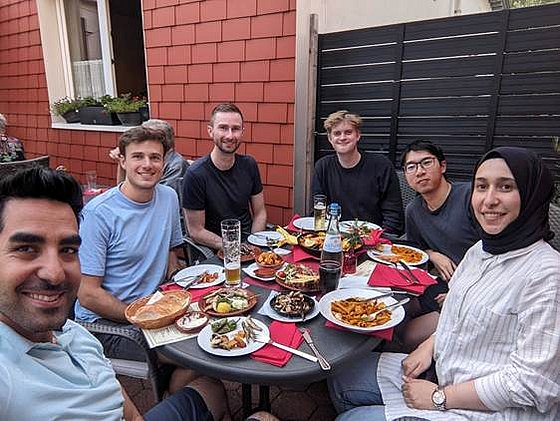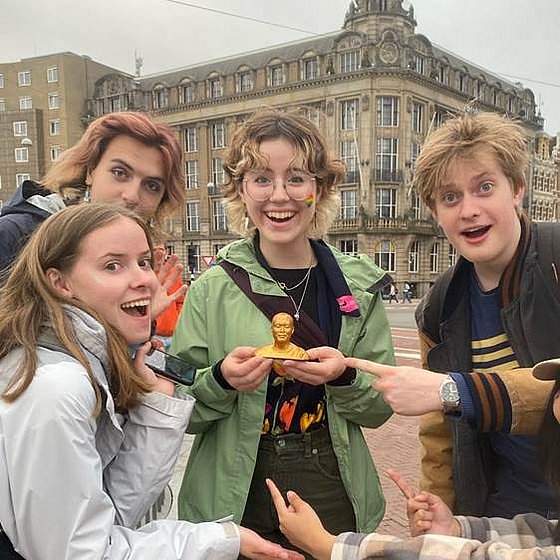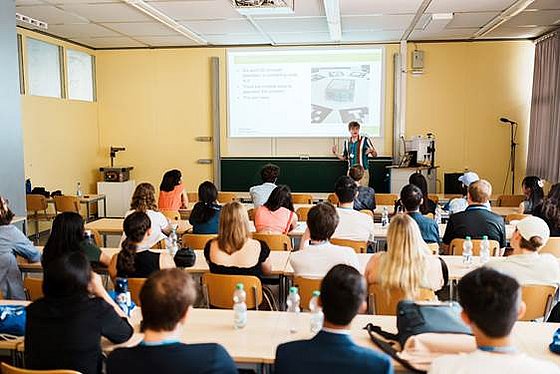Marc O'Neill

Mark O'Neill ist ein junger Forscher aus Dublin, Irland. Er ist Physikstudent am Trinity College Dublin mit einer Leidenschaft für Informatik. Während seines dreimonatigen RISE-DAAD-Praktikums bei TMDT leistete er einen Beitrag zur Forschung über Deep-Learning-basierte visuelle 3D-Qualitätsprüfung.
ARRIVAL
How was the arrival at the Institute?
Arriving at the Institute was a seamless experience. My supervisor, Robert Maack, picked me up from the airport and was incredibly helpful in getting me settled into the student accommodation and guiding me through the initial German bureaucratic processes!
How did you get accepted at the institute?
I gained acceptance at the institute through the DAAD RISE Germany programme, which links German institutes with students from Ireland, the US, Canada, and the UK for summer internships.
How did you get supported?
Throughout my internship, the main pillar of support was my supervisor, Robert Maack. He was instrumental not only in guiding me through the project but also in offering advice about life in Germany and getting settled in a new country. Additionally, a major advantage of the DAAD programme is that you have a supportive network of fellow interns across Germany. This was a useful source of support but also a great way to forge lasting friendships.
What do you like about TMDT, what don't you like?
I really enjoyed working on AI projects at TMDT – it was super engaging and always kept me on my toes. The team was fantastic; everyone was super friendly and made each day enjoyable.
SCIENCE/RESEARCH

What was new in your studies?
In my time at TMDT, I explored emerging fields in artificial intelligence and computer vision, specifically anomaly detection in manufacturing. I worked with my supervisor, Robert Maack, on a novel method for 3D anomaly detection. This was a leap from my physics background and a truly exciting project.
What did you learn?
My learning experience was rich and diverse. I learned a lot about computer vision and machine learning techniques from participating in weekly Journal Club meetings, where we would discuss new and important or interesting papers! Throughout my work, I became proficient with Pytorch, Blender programming with Python, Docker, Git, and working with an integrated production pipeline.
What is the biggest difference between your hometown and Wuppertal?
The biggest difference is definitely the cost of living. Everything from rent to grabbing a bite to eat is way cheaper in Wuppertal compared to Dublin!
LEISURE TIME

What did you do outside of work?
Some of the interns in NRW and I organised a weekly meetup picnic in Köln, which was always fun. Then, on the weekends we would travel somewhere new to see as much of Europe as possible.
What was the best trip during your stay?
We travelled far and wide, but the Heidelberg conference was one of the best highlights of the summer, since all the interns were together for a full weekend.
What were your first german words?
“Mit Karte, bitte.” I studied German in school, which definitely made day-to-day living easier, but I know plenty of other interns who got by perfectly with very little German.
Have you ridden the Schwebebahn?
Of course, you haven’t lived until you’ve taken a trip on the Schwebebahn. I brought other interns to Wuppertal just so they could experience it!
What is the best food in Town?
Hans im Glück. The best burger I’ve had in my life, hands down.
